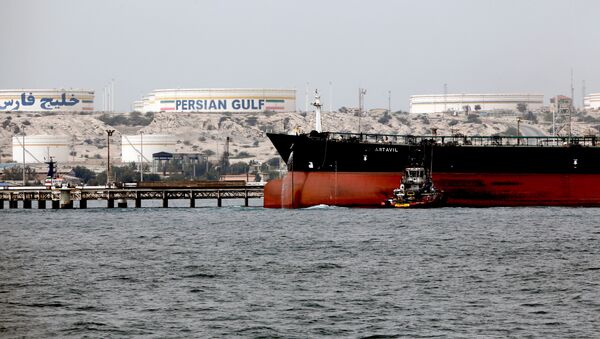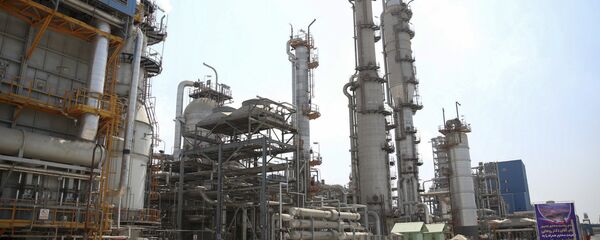New Delhi (Sputnik) — India's External Affairs Ministry on Thursday said the country has drawn up a robust plan to compensate for the reduction in energy imports from Iran, adding that it is well prepared to deal with the situation.
READ MORE: Iran Takes Steam Out of US Sanctions, Boosts Gas Sales to Neighbours
"There will be additional supplies from other major oil producing countries based on robust plan which has been drawn up by the petroleum ministry. The aspects related to the amount of oil which will be imported by India from different countries are the matters of operational details," External Affairs Ministry spokesperson Raveesh Kumar said in a weekly media briefing.
— Raveesh Kumar (@MEAIndia) May 2, 2019
Nevertheless, the spokesperson said the country will continue to engage the US on the matter.
"Whatever decision we take, it will the combination of different factors. Energy security is one of them. Commercial consideration will be number two and the third will be economic interests in mind," he added.
Sources told Sputnik that the US has said that India's "escrow account" used for Rupee-Rial trade cannot be operated after 2 May.
Earlier, India had an option to trade in its national currency to escape the sanctions.
During the wave of previous sanctions, India revived an arrangement of making payments via an account in the UCO Bank in India, which does not have international exposure and is not connected to SWIFT (Society for World Interbank Financial Telecommunication System).
READ MORE: Trump, Abe Confirm Joint Desire to Eliminate Iran Oil Imports — Report
In November 2018, the Trump administration issued temporary waivers to eight countries, including India, allowing them to purchase Iranian oil without the risk of being sanctioned for 180 days.
India is the second biggest importer of Iranian crude, only behind China. The country has reportedly limited its oil imports from the Islamic Republic from 452,000 down to 300,000 barrels per day to meet the conditions of the 180-day US waiver.
India is the world's third largest importer of crude oil, with over 60 per cent of its oil coming from the Middle East.



